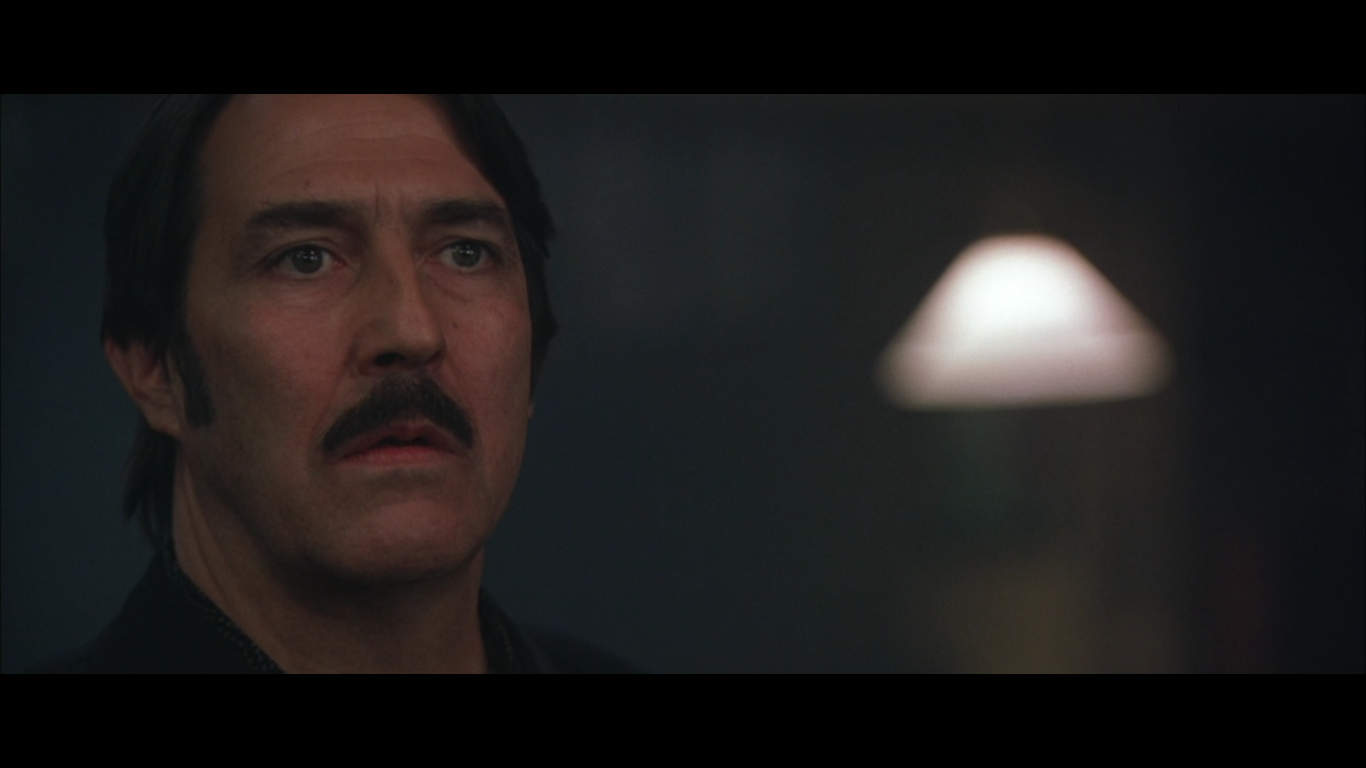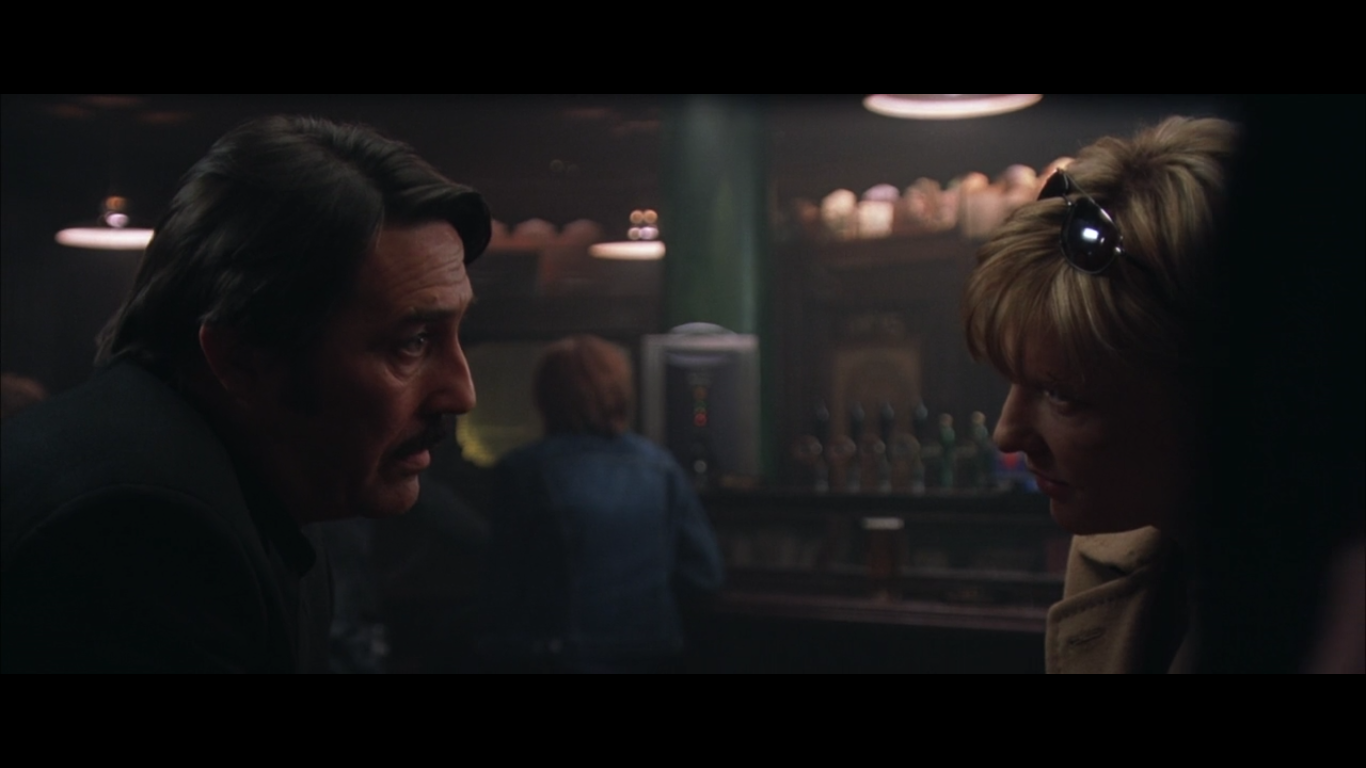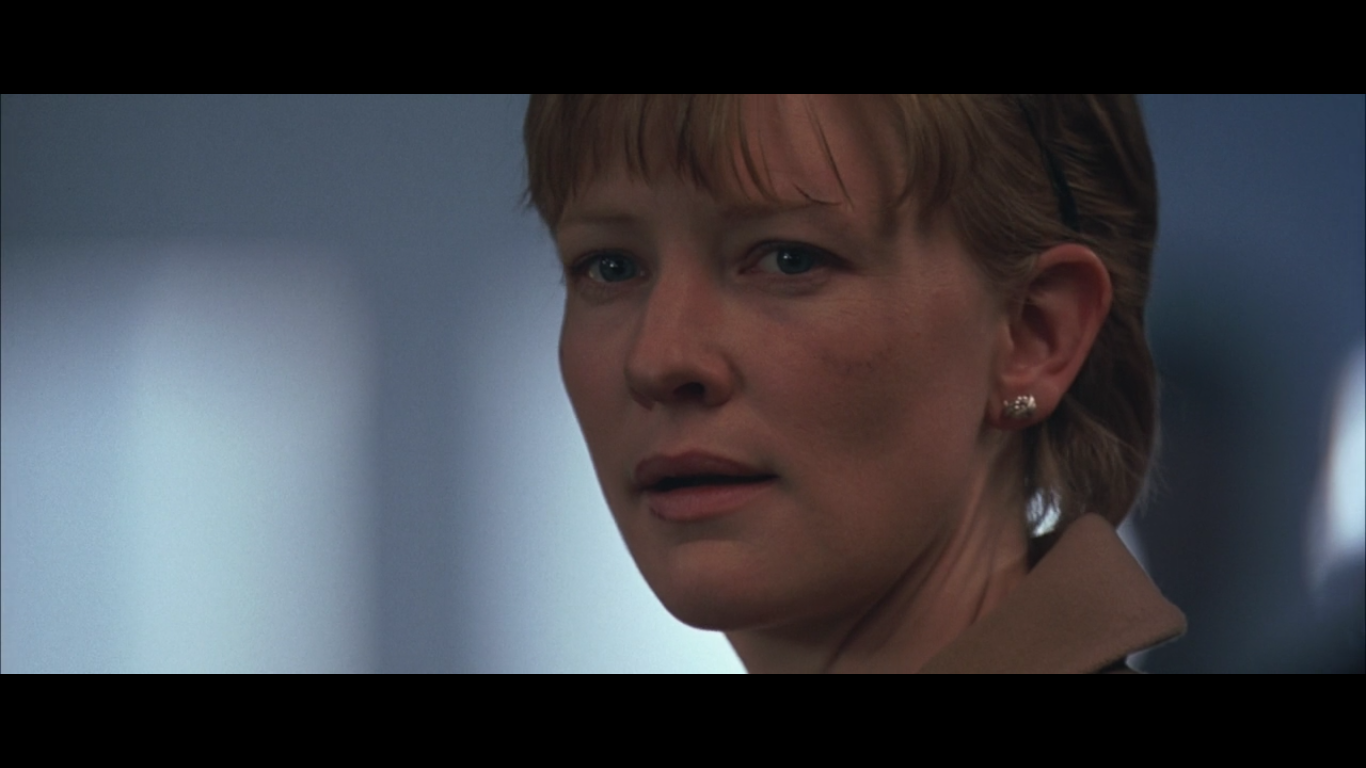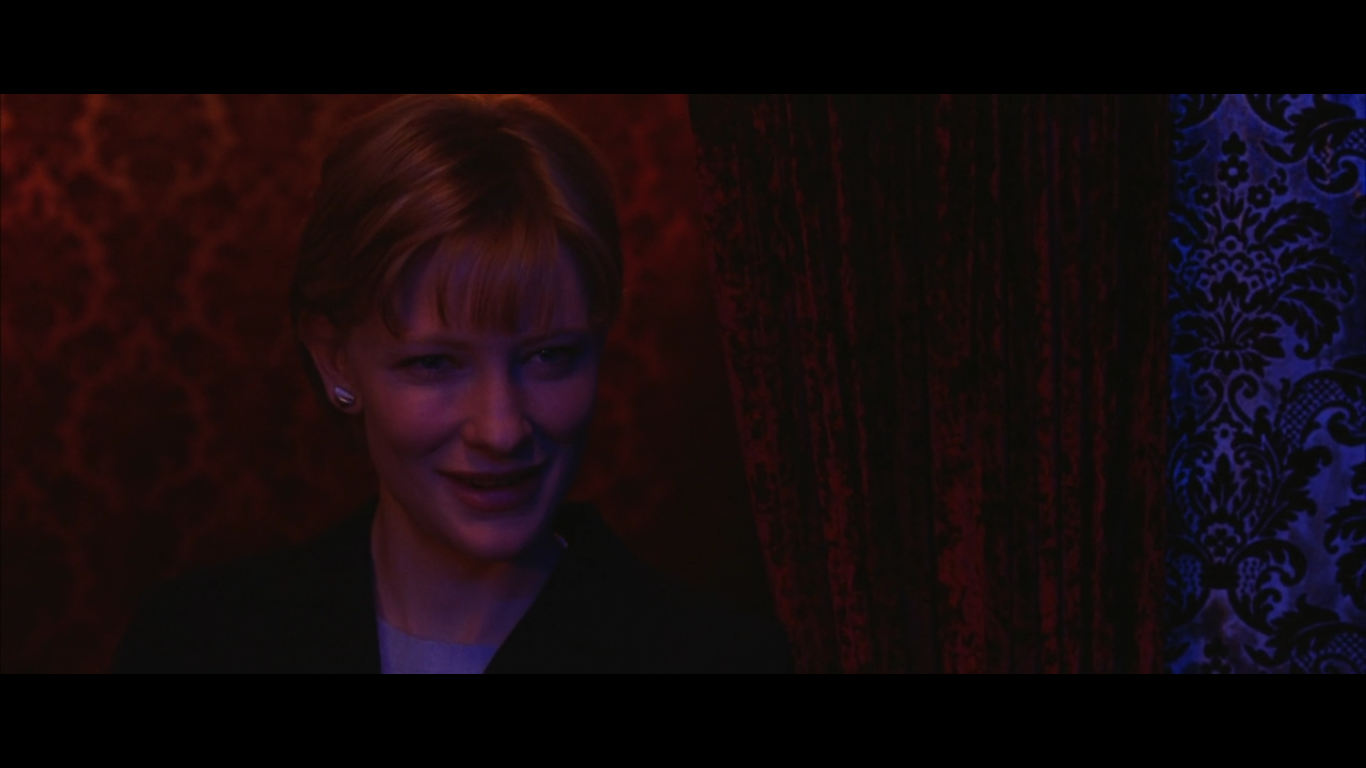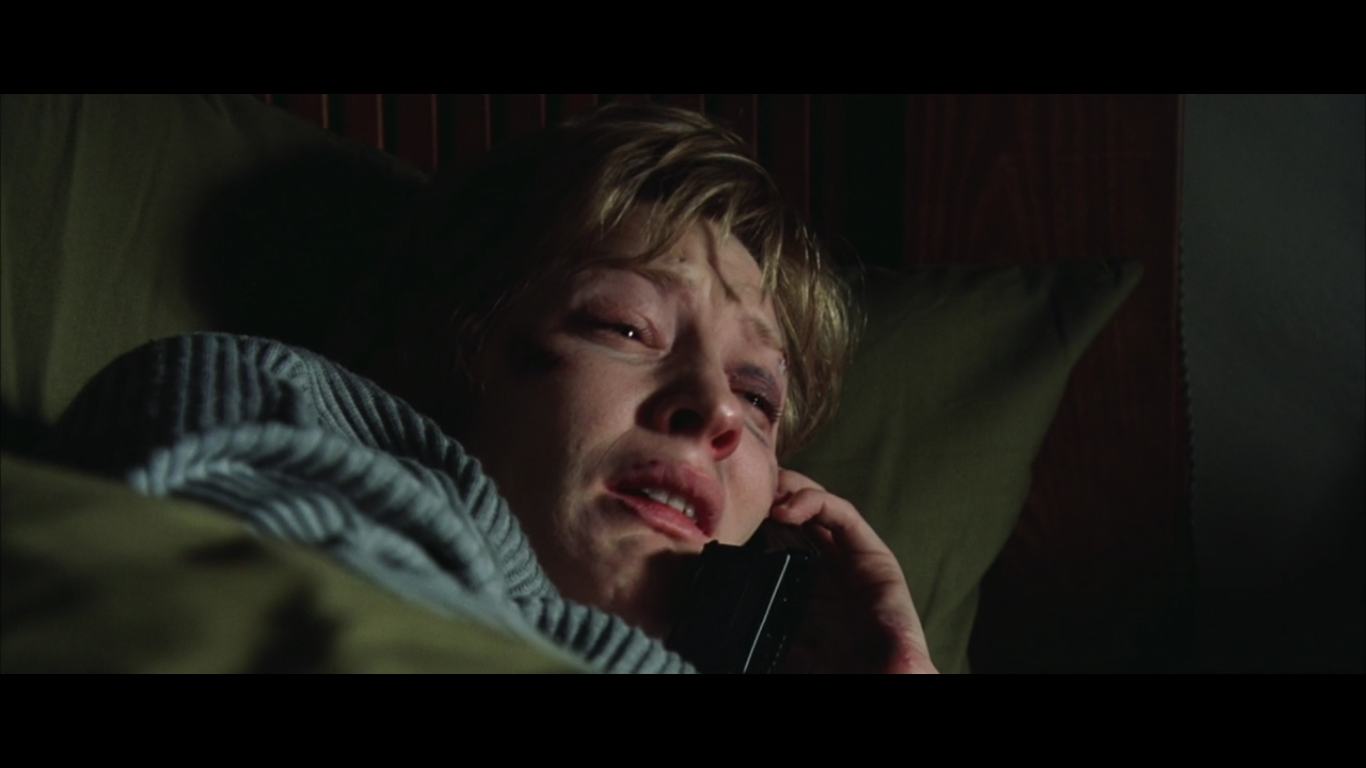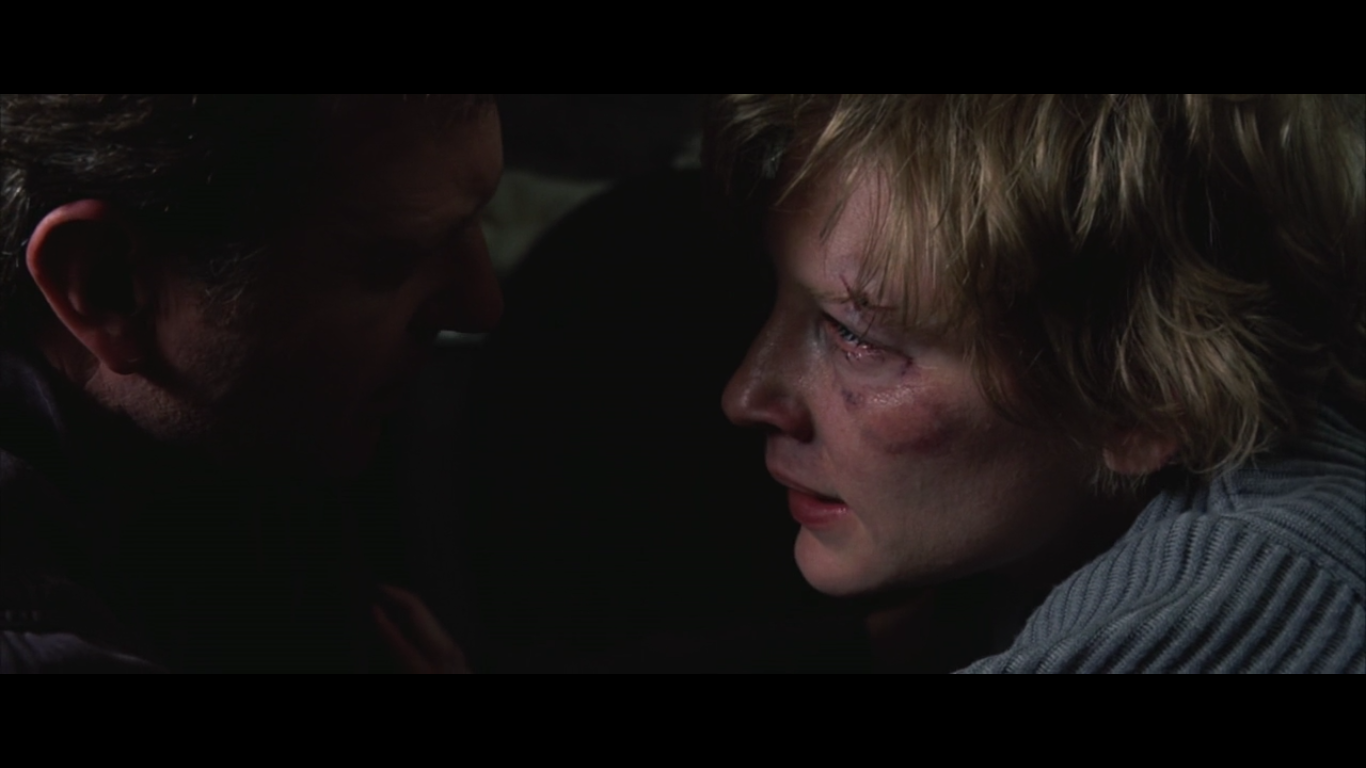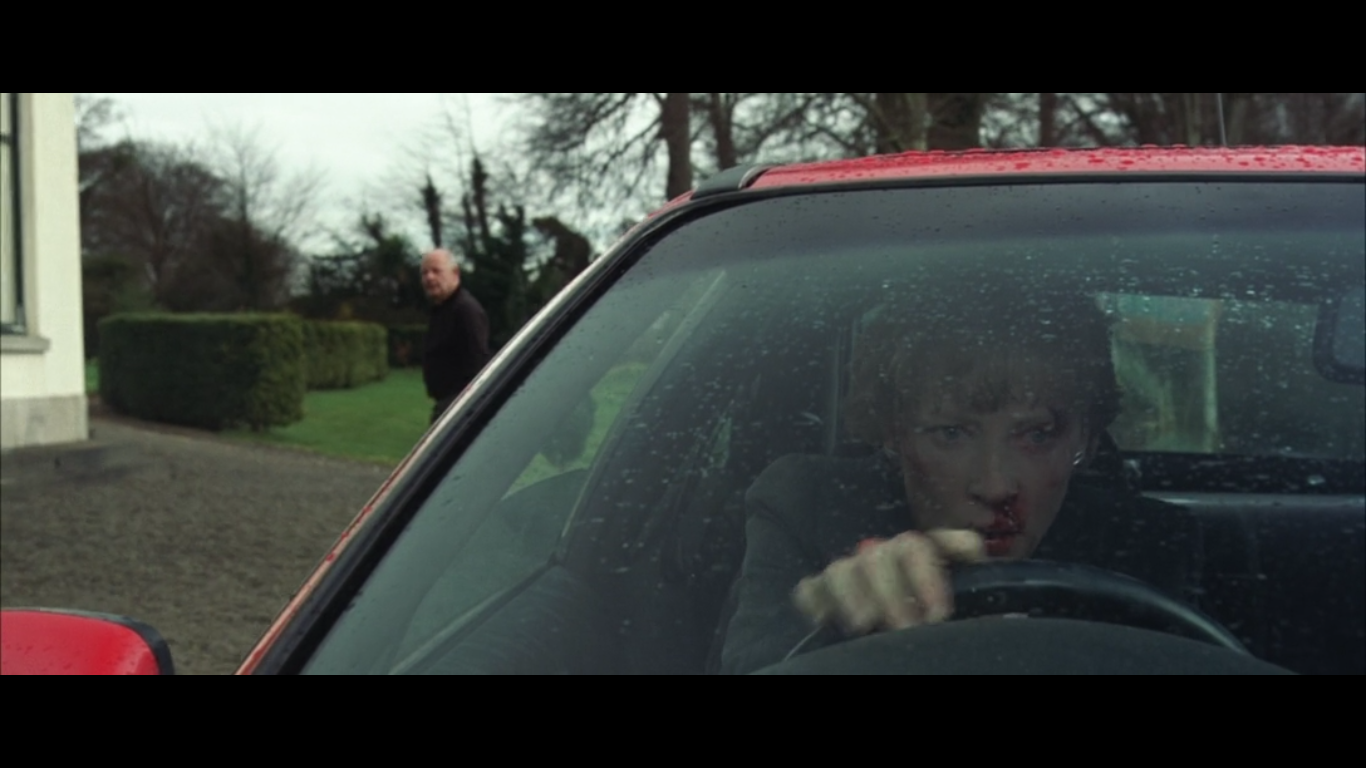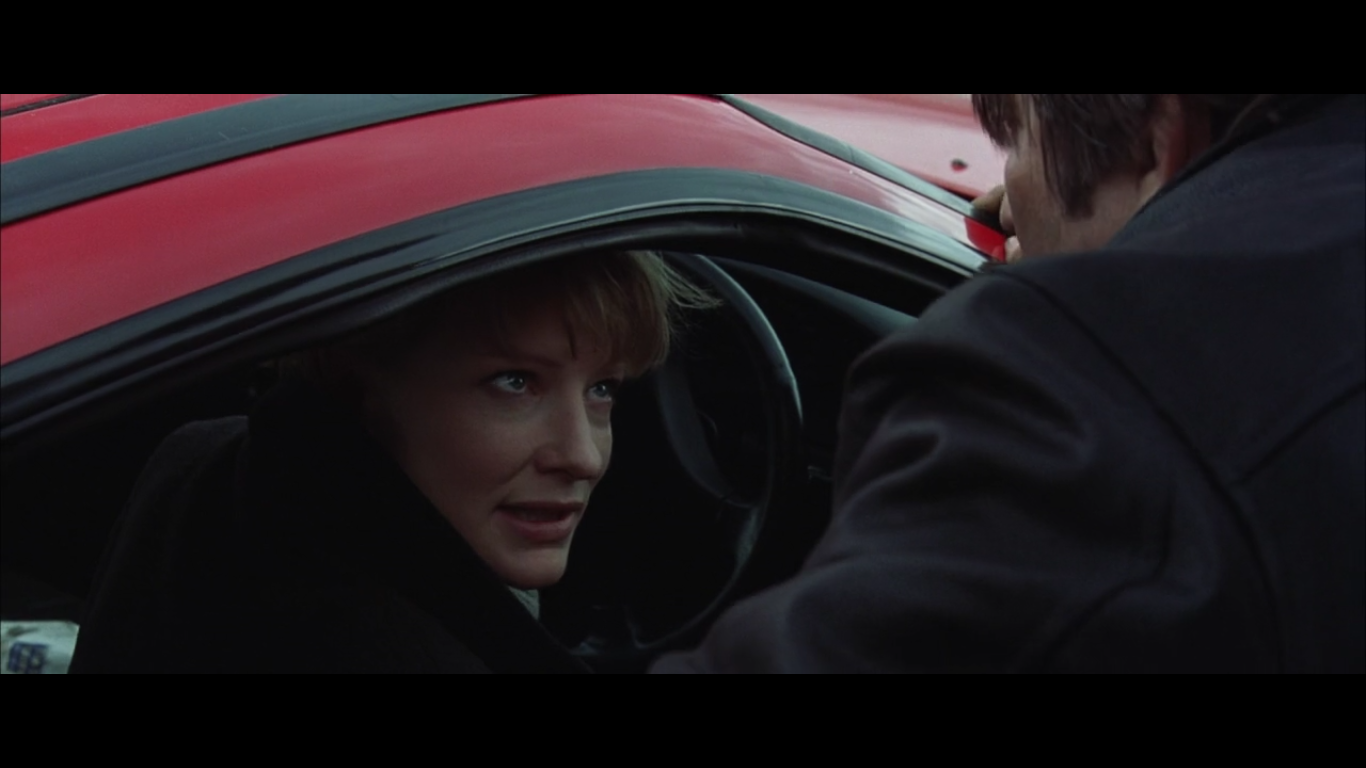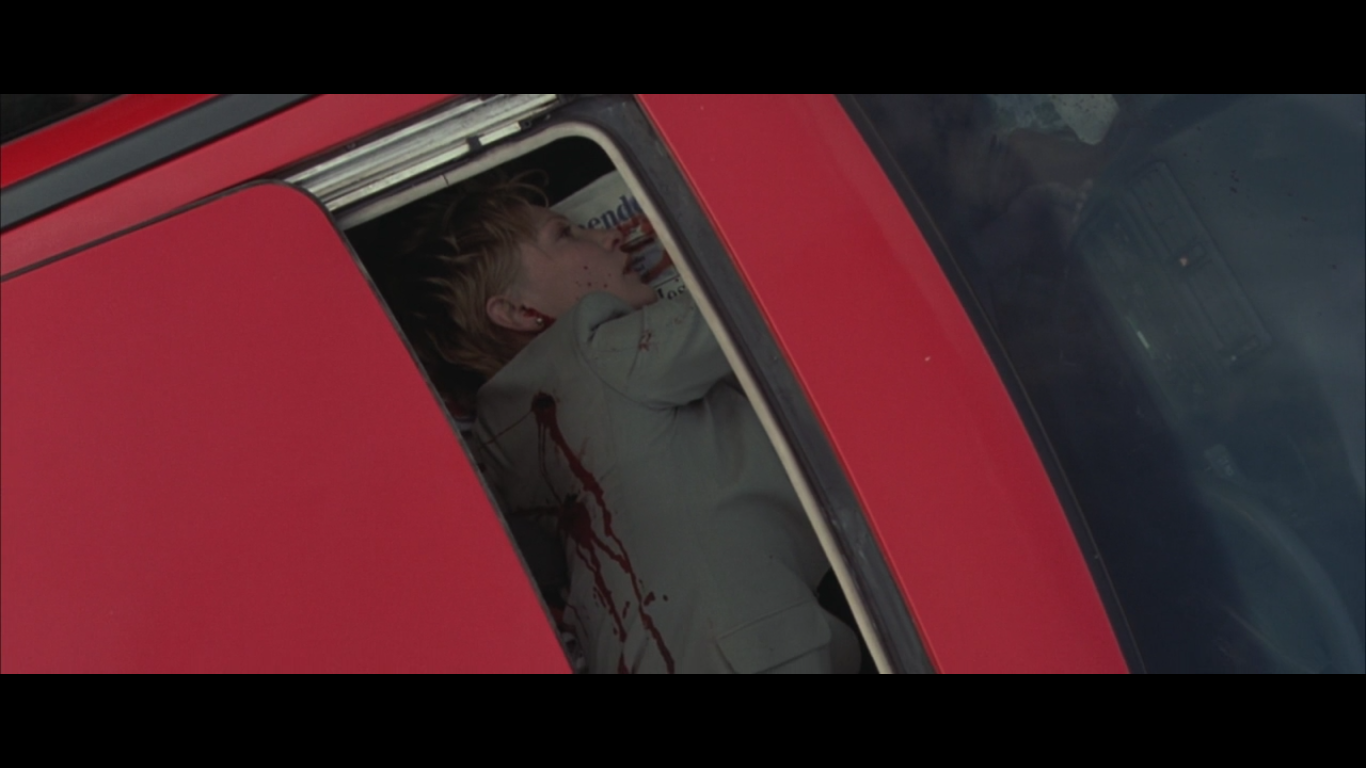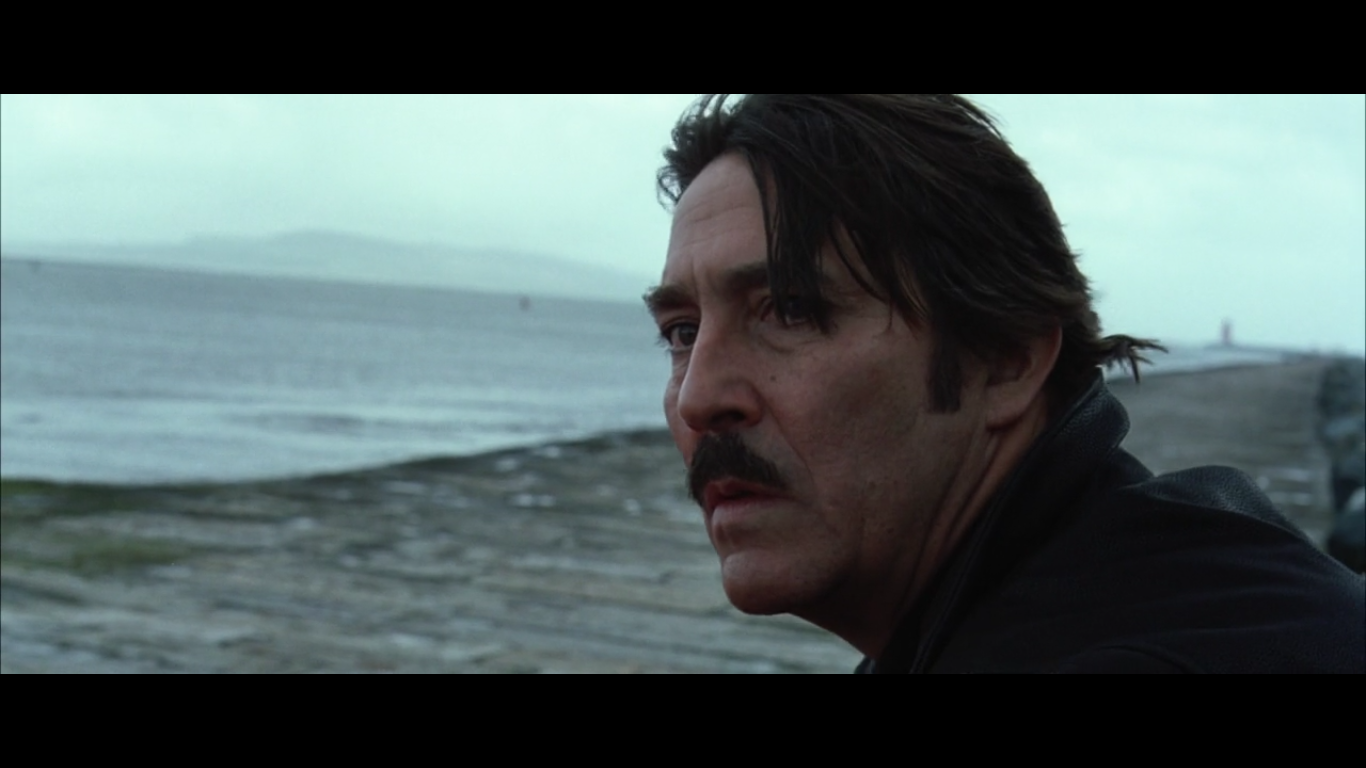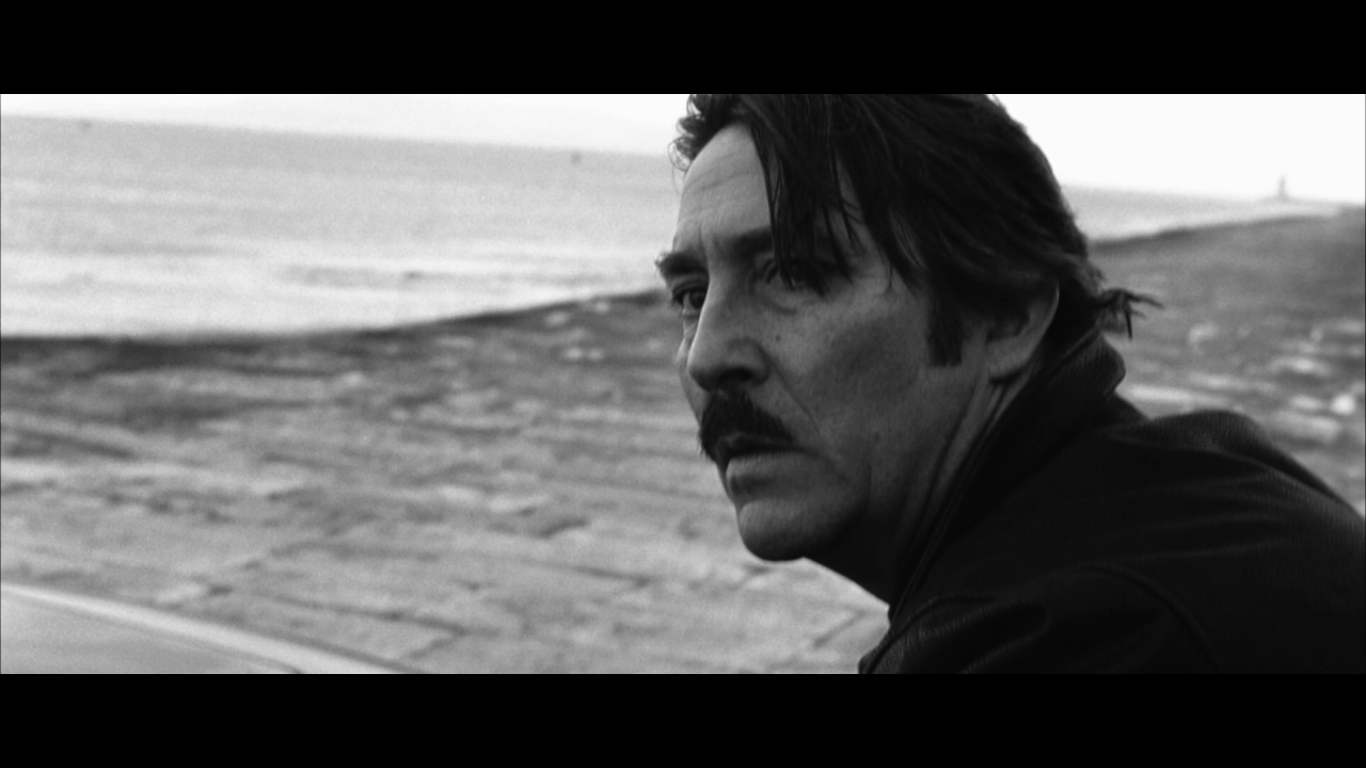Veronica Guerin (2003)
written by: Carol Doyle and Mary Agnes Donoghue
starring: Cate Blanchett, Ciarán Hinds, Gerard McSorley
Based on a true story, Veronia Guerin is a pretty stately small-scale biopic. Handsomely filmed and respectfully told, the film covers the story of Irish reporter Veronica Guerin's real life investigation of drug lords in Dublin and it's surrounding areas, which led to threats against her life and her eventual murder. Probably you know going in that she died, and if you didn't, the film opens with the moments leading up to when she was shot in her car at a stop light, shying away from the actual violence of it until the finale of the film. Nevertheless, there's a decent build of tension throughout, and the telling here lacks the particularly cheesy appeals towards the value of dangerous journalism. Throughout, it's very clear that not only does Veronica think it's worth it to put her life at risk to suss out drug pushers and crime lords, but that she couldn't stop even if she wanted to. There's a thrill to be had in the danger of it, and in the importance. The same is true of the audience-- we know the ending but we're watching for the thrill of it. If we wanted the cold facts, we'd read a book.
Many movies these days start at the end and then flash backwards, giving you a looming knowledge of whatever's to come. Veronica Guerin pulls this trick, but uses it better than I've ever seen before. The first time we see the scene, the focus is entirely on Veronica (Cate Blanchett in a haircut and an accent, looking effectively like the real Guerin)-- how she experiences these events, her face and feelings. From the start (which is actually the end), Veronica is a lively, energetic, buoyant and appealing figure. The end of her story feels like the beginning, and I like that it's presented that way. For me it was a surprise to realize the movie was opening in media res, after watching a comfortable four or five minutes of Veronica dashing along in her zippy red car, calling friends and family, laughing and celebrating dodging punishment for speeding tickets in court. She's so vibrant, and this fresh start on her traffic record feels like a new beginning. But, alas, it's not.
An hour and a half later, we see the same scene play out for a second time, but this time the scene is mostly seen through the experiences of others. In a way that feels beautifully Schumacherian, we see moments of the other drivers who will end up around Veronica's car after she's shot-- a pair of nurses, a truck driver, so on. The perspective has shifted and meaningfully. Her death, when it comes, is less about her and more about how these strangers are affected by her. That's the movie in a nutshell, I'd say. For a while it's about Veronica. In the end, it's about how people reacted to her and her murder.
But, truly, for an hour and a half, it absolutely is about Veronica. The highlight of the film is of course a lovely, complicated performance by Blanchett— rough but gentle, confident yet frightened, loving and unrelenting, she presents Veronica as a victim of her own determination. She's got one hell of an ego, and being told to stop only spurs her on more. She can’t let it go, and won’t, even when she knows it’s dangerous. There’s an unrelenting optimism under her journalistic cynicism, that her stories could change the world. Thanks to Blanchett's performance, Veronica always feels cohesive through her wild ups and downs. She can be frightened when alone, shattered with her mother, and then the strong face comes right back and she’s on the news with a bold declaration and making jokes with her coworkers. It's refreshing to see a woman unapologetic about her career and her ambition, who also has a family she loves. A lesser movie might make more of the competing pulls of her family and her journalism, but the one scene in Veronica Guerin that brushes against that is thankfully brief, and the tension is resolved through a playful and loving bit of familial intimacy. Veronica and her husband and her son dance in her office to a U2 song, laughing. She may work into the night, but there's always time for her family.
The frustration within her family is not really that she's working too hard, or for too long hours-- but rather that her job is putting her at risk and she refuses to keep herself safe. Everyone is frustrated that Veronica won't back down from what is an increasingly dangerous situation. Her family, her coworkers, even her friend/criminal informant John Traynor (Ciarán Hinds, mustachioed and tbh super handsome) tries to tell her to quit it. But quit it she won't, and back down she won't, not even after she's been shot, beaten and threatened. She trots along as if nothing bad could happen-- “they never shoot the messenger"-- and that unrelenting confidence and belief in her cause is powerful, if not occasionally wrong-headed. Her confidence leads her to walk arm in arm with crooks and confront killers face to face. She even goes so far as to send away her police escort, because they're interfering with her work. Eventually, you watch every scene worried about what will happen to her. Every stranger she passes could be her murderer, or someone out to make an attempt. Yet still she presses on.
I have complicated feelings about this, because no matter how much I respect the work of journalists, I don’t know if it’s worth the cost of your life. Journalist deaths always hit me in a certain hard way, and in the case of this somewhat fictionalized Veronica Guerin, where she not only doesn't avoid the clear danger signs closing in on her, but actively seeks out more danger, I have a confused sense of sympathy. She causes herself immense trouble, and then seems surprised when there are repercussions. It's nice that she's not presented simply as a plucky girl reporter, out to do good, but more a dogged and ambitious creature of over-confidence. She's flawed, and the movie doesn't lionize her. I respect it for taking that side, instead of treating her as saintly. She's not a saint, but she is a hard working journalist with good intentions.
In that light, the end of the film, which features a public funeral underscored by a sad traditional Irish folk tune and intercut with narration about how Ireland reacted to her murder, feels almost ironic. The movie is sure to tell us that the reaction to her murder was a uprising in the streets that forced hard drugs into the shadows and cut crime rates. The epilogue has a strange, surreal quality to it, perhaps because it's hard to believe that one woman's death did so much, especially this woman. One gets the feeling that her death accomplished more to subdue the drug trade in Ireland than her life and work did, which is troubling and sad. The movie doesn’t lionize her, but it seems like Ireland did. I think it's a purposeful action of an overall heavy, looming, and unhappy film. There’s no real triumph to be had, even if all the baddies get arrested and their assets seized. No matter what success Veronica’s cause had after her death, she’s still dead, and she was still a complicated person. The film deflates without her, and you are reminded again and again of the husband, young son, mother, and friends she left behind. You feel that the loss of that one life is the true tragedy. And that’s how it is with drugs. One life ruined, crushed and killed by heroin, is as deep a tragedy as anything else. One person. Which is Schumacher's whole thing, I feel. He’s so interested in the one person, the small details, the personal aspects of every story. So he makes this functional little true life story, that is so about Veronica that the eventual overhaul of the way Ireland handled its drug problem feel almost minimal. One can barely feel moved by the sweeping movement, because Veronica didn’t live to see it.
This dichotomy, of Veronica as a flawed, singular person and the meaning her life took on as a symbol after her death, adds some interest to an otherwise pretty straight foward story. The stately story telling is paired with some handsome visual highlights— the occasional touch of color and neon, some handsome camera moves and interesting shots. Surrounding Blanchett are some great performances, especially Ciarán Hinds. The pair of them have an extraordinary, sparkling chemistry, and Veronica’s relationship with Traynor is one of the more interesting, complicated emotional through-lines of the movie. Traynor likes Veronica personally, but hates the way she gets in the way of his business. Does he hire a man to kill Veronica, or just to warn her off? Does he have anything to do with it? Questions like that sparkle across their scenes together. Hinds is a terribly compelling actor to me, and to have him in scenes with someone as inherently dynamic as Cate Blanchett means their scenes are the best in the movie.
So overall, Veronica Guerin demonstrates Joel Schumacher’s ability to step up to the plate on a genre exercise and deliver. It’s a pretty straight forward true story, a serious script with a touch of added irony, with flavor and a little flair. Not much, but enough to make it interesting to watch. It’s not necessarily a stand out film, and not necessarily one I’d recommend off hand, but it’s strong and handsome, grounded and secured by strong, warm performances by some real talented folks. I expect most people come to this movie to see one of our greatest living actresses in an undersung role— and yes, Cate is wonderful. That’s as good a reason as any to see this movie, and while you’re there, appreciate the surrounding color. The Irish landscapes (genuinely filmed in Dublin, and you can tell), the richness of color and constrasts, the performances, the tender understanding that one person can be many things. That sort of understanding is vital to what makes this movie work, and so much of that comes from Schumacher’s personal touch.
Overall: ★ ★ ★ ★
Schumacherness: ★ ★ ★
Up next: The Phantom of the Opera (2004)

